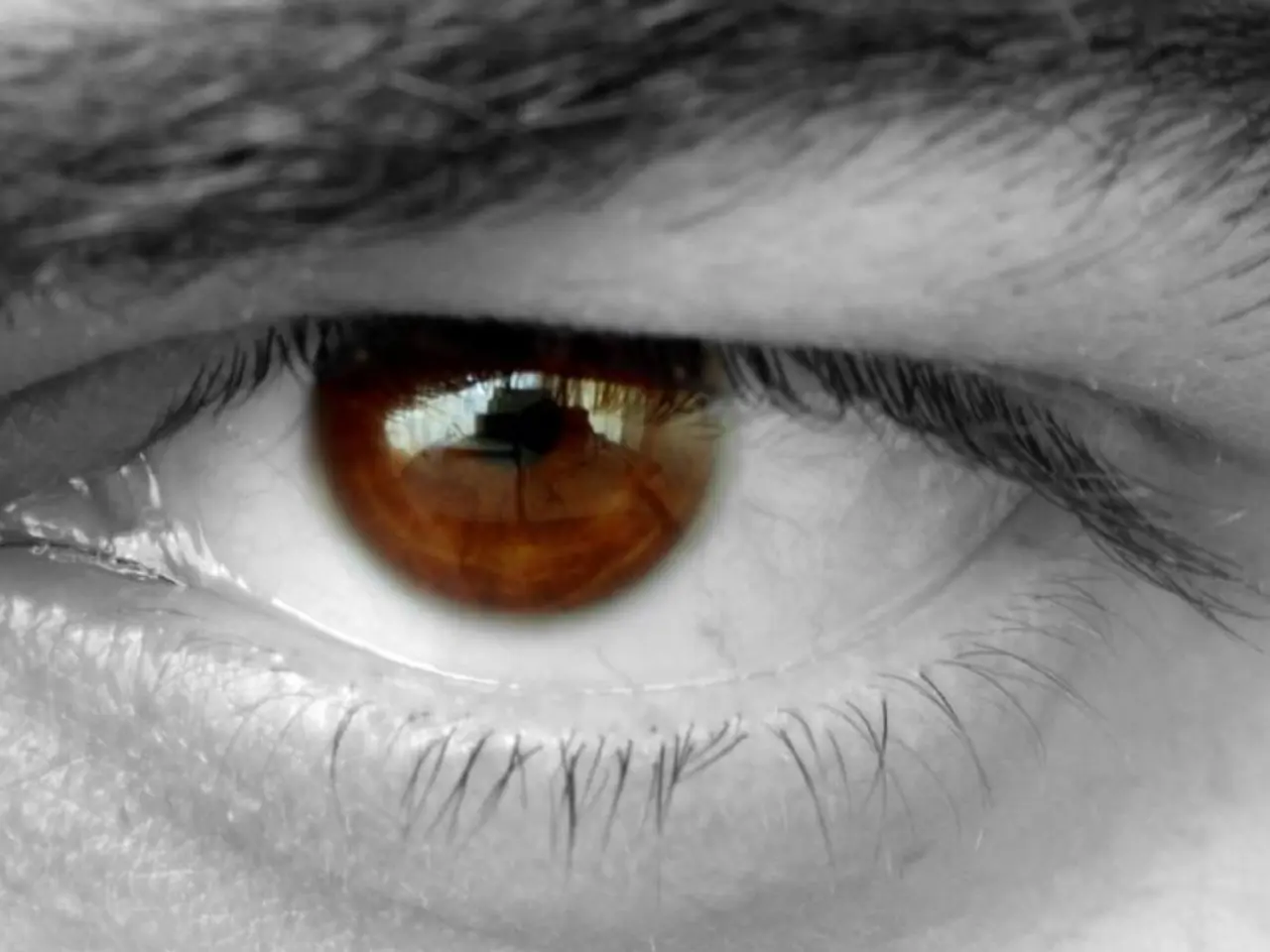Symptoms Indicative of Macular Degeneration in its Initial Stages
In the realm of eye health, Age-Related Macular Degeneration (AMD) is a significant concern, particularly for those over 60. This condition affects the macula, a small area in the center of the retina responsible for central vision, and can lead to a decline in activities requiring close focus.
Early signs of AMD can be subtle, often going unnoticed. Blurred central vision, distortion of straight lines appearing wavy or curved, and dark or empty spots in the central visual field are some of the initial indicators. Other symptoms include difficulty recognizing faces, a need for brighter light when reading, and colors seeming less vibrant.
Key risk factors for developing AMD include age, family history, Caucasian race, smoking, obesity, poor diet (low in antioxidants, high in saturated fats), cardiovascular diseases such as hypertension and high cholesterol, prolonged exposure to ultraviolet sunlight without protection, female gender, chronic inflammation, and high blood pressure.
Given that early stages often lack obvious symptoms, regular eye exams are crucial for early diagnosis, especially for individuals with these risk factors. At-home tools like the Amsler grid can help detect changes early by monitoring for visual distortions.
It's important to note that there is no cure for dry AMD, but treatments are available for wet AMD to stop the growth of abnormal blood vessels. However, regular monitoring and timely intervention can significantly slow down the progression of the disease.
In summary, the combination of age, genetics, lifestyle factors, cardiovascular health, and environmental exposure all play major roles in AMD risk. Early signs center on changes in central vision such as blurring, distortion, and spot formation. Anyone who notices changes in their eyes or vision should talk with an eye specialist. Regular eye exams and maintaining a healthy lifestyle can help in preventing or managing AMD.
[References] 1. National Eye Institute. (2021). Age-Related Macular Degeneration (AMD). Retrieved from https://nei.nih.gov/healthyeyes/age-related-macular-degeneration 2. American Academy of Ophthalmology. (2020). Age-Related Macular Degeneration. Retrieved from https://www.aao.org/eye-health/diseases/age-related-macular-degeneration-amd-list 3. Macular Society. (2021). What is Age-Related Macular Degeneration? Retrieved from https://www.macularsociety.org/living-with-macular-disease/what-is-amd/ 4. Mayo Clinic. (2021). Age-Related Macular Degeneration. Retrieved from https://www.mayoclinic.org/diseases-conditions/age-related-macular-degeneration/symptoms-causes/syc-20353829 5. Macular.org. (2021). Amsler Grid. Retrieved from https://www.macular.org/amsler-grid
- In the field of health and wellness, AMD (Age-Related Macular Degeneration), specifically affects eye-health, particularly for those aged 60 and above.
- The macula, a critical part of the retina, is where AMD primarily impacts, potentially causing a decline in activities that require close focus.
- Apart from age, other risk factors for AMD include family history, Caucasian race, smoking, obesity, poor diet, cardiovascular diseases, prolonged UV exposure, female gender, chronic inflammation, and high blood pressure.
- Given the subtle early signs of AMD, it's essential to have regular eye exams, especially for those at risk, to facilitate early diagnosis.
- At-home tools like the Amsler grid can aid in monitoring visual distortions, helping detect changes early.
- There's currently no cure for dry AMD, but treatments exist for wet AMD to halt the growth of abnormal blood vessels.
- Maintaining overall health and wellness through proper nutrition, skincare, fitness and exercise, and mental health practices can contribute to the prevention or management of AMD.




